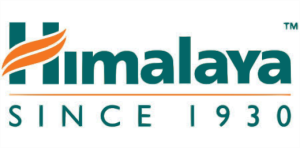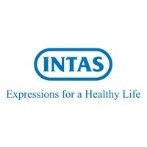CCI imposes penalty on chemists and druggist associations in Madhya Pradesh and two pharmaceutical companies
The Competition Commission of India (“CCI”) by way of an order dated 03 June 2019 has imposed penalty on Madhya Pradesh Chemists and Druggist Association (“MPCDA”) and Indore Chemists Association (“ICA”) (collectively ‘chemists and druggist associations’), as well as two pharmaceutical companies, namely, the Himalaya Drug Company and Intas Pharmaceuticals Limited for violating provisions of the Competition Act, 2002 (“Act”).
The CCI directed investigation by the Director General (DG) on allegations made by the Informant i.e. Madhya Pradesh Chemists and Distributors Federation that pharmaceutical companies through their Carrying & Forwarding agents (C&F Agents) are mandating the requirement of a No-objection certificate (NOC) from the chemists and druggist associations prior to the appointment of their stockists.
DG investigation
During the detailed investigation[1] , the DG, did not find any evidence against majority of pharma companies and their C&F agents indulging in the practice of obtaining NOC before appointing new stockist. However, DG found certain communications (in the form of e-mails, letters etc.) between the chemist and druggists associations and three pharma companies viz Torrent, Intas and Himalaya, which were not originally arraigned in the information. Accordingly, the CCI directed “further inquiry” vide order dated 07.12.2016 under Section 26(8) of the Act to carry out further investigation for ascertaining the role of these pharmaceutical companies in perpetrating the anti-competitive conduct of seeking NOC mandatorily prior to appointment of stockists. The DG vide supplementary investigation report dated 27.11.2017 found evidence of violation against the three pharma companies. The finding against the above named three companies was based on the documentary evidence found from the communications exchanged with the chemists and druggist’s association.
DG also found evidence of mandating the requirement of obtaining “no objection”/clearance” before appointment of new stockiest ,resuming supplies to existing stockists ,limiting supplies to only those stockists who reported sales exceeding Rs. 50000/- etc. against the chemists and druggists’ associations in the form of several emails sent by these three pharma companies seeking their approval .
CCI Inquiry
During the post investigation hearings before CCI, the parties challenged the findings of the DG before the CCI. The findings were challenged on inter alia the following preliminary grounds:
- Jurisdiction of the Commission
It was argued by some of the parties that the pharmaceutical sector is governed by the drug control departments of the respective states, National Pharmaceutical Pricing Authority (‘NPPA’) and such other authorities. It was also argued that as per the Drugs and Cosmetics Act, 1940 the CCI does not have jurisdiction to look into issues in the pharmaceutical industry.
Reliance was also placed on the decision of the Hon’ble Supreme Court in Competition Commission of India v. Bharti Airtel Ltd (2018), SCC Online SC 2678, to state that the sectoral regulator under the Essential Commodities Act, 1955, should first examine and decide the matters under its purview.
CCI’s finding- The CCI noted that the requirement of an NOC/LOC from an association prior to appointment of a new stockist by the pharmaceutical companies, creates entry barriers. In such cases, the CCI being a market regulator is obliged to intervene to ensure that markets work in a fair, competitive and unfettered manner.
While rejecting this specific objection, the CCI also held that competition law is a special law with a mandate overarching across all sectors (which may also be governed by their respective sectoral regulators), with the sectoral regulators defining ex-ante rules to regulate the day to day functioning of the market participants in their respective sectors, and the CCI acting more as an ex-post regulator which only intervenes when such players disturb the fair functioning of the markets. Thus, both the regulators and the laws complement each other and ought to be interpreted harmoniously, rather than being interpreted as mutually exclusive.
- Validity of the order for “further inquiries” passed under Section 26(8) of the Act
With respect to the order dated 07.12.2016 under Section 26(8) of the Act, it was contented that in terms of Section 26(8) of the Act, the CCI ought to have made an inquiry on its own. It was contented that the CCI does not have any powers to direct further investigation by the DG under Section 26(8) of the Act and ,therefore, the order stands vitiated, since the CCI referred the matter to the DG to carry out the investigation rather than inquiring the matter on its own.
CCI’s finding– The CCI held that ‘inquiry’, as appearing under Section 26(8) of the Act, necessarily includes all possible modes through which the CCI can consummate its inquiry. Reliance was also placed on Reg. 18(2) of the Competition Commission of India (General) Regulations, 2009 to state that investigation is a subset of inquiry and remanding of the matter to the DG for further investigation is within the scope of inquiry by the CCI. Thus, the Commission may remit the matter back to the DG for carrying out further investigation where the CCI finds that such further investigation is warranted.
- Non-applicability of Section 3(3)(b) of the Act to the chemists and druggist associations
Since the chemists and druggist associations are not by itself engaged in the similar trade of good or provision of services as that of pharmaceutical companies, it was contented that they do not come under the purview of Section 3(3)(b) of the Act.
CCI’s finding: The CCI held that a decision taken by an association also comes within the purview of Section 3(3) of the Act.
Regarding the issue as to whether the chemist and druggist associations were mandating the requirement of NOC prior to appointment of stockists by the pharmaceutical companies, the CCI held that the evidence on record clearly proves that the Madhya Pradesh Chemists and Druggist Association and the Indore Chemists Association were mandating NOC for the appointment as stockists which resulted in limiting and controlling the supply of drugs and medicines in Madhya Pradesh.
With respect to the allegations levelled by the Informant against the pharmaceutical companies, the CCI noted that the DG has found evidence of anti-competitive conduct only against Himalaya, Torrent and Intas. However, Torrent was exonerated by the CCI since it was able to lead evidence to demonstrate that it communicated with the chemists and druggist association only to resolve disputes with stockists. Moreover, there was no evidence to demonstrate that Torrent insisted on NOC/LOC from the chemists and druggist associations for appointment of stockists.
Himalaya and Intas were, however, found guilty of anti-competitive conduct by the CCI since they cooperated with the chemists and druggist associations, instead of approaching the CCI. The CCI in line with its previous decisions reiterated that the pharmaceutical companies by cooperating with the NOC requirement of the associations, are also perpetrators of such anti-competitive practice, in violation of Section 3(1) of the Act.
Accordingly, Himalaya was fined an aggregate penalty of INR 18.59 Crore, whereas individual penalty on its officials under Section 48 of the Act was almost INR 4 lakhs. The penalty imposed on Intas was INR 55.59 Crore, with the individual penalty on its office bearers at INR 11.78 lakhs.
Additionally, a cumulative penalty of INR 15.78 lakhs was imposed on the chemists and druggist associations.
Comment: This is the latest order is in the series of orders passed by CCI against the practice of mandating No Objection Certificate by chemists and druggists’ associations before recommending appointment of stockists to the pharma companies. The CCI has been advising the pharma companies to approach it against this practice by the chemists and druggists’ associations which limits the downstream market of distribution of medicines. Already some pharma companies have been penalized for either silently suffering such coercive tactics by the trade associations or tacitly cooperating with them and the cases are in appeal before NCLAT. This order should serve as a warning for the pharma companies to set their house in order and to and to stop such practices or if they are not able to do so then to report any such practice prevailing either within their marketing or distribution channels or through their C&F agents to CCI. The pharma companies are advised to take the help of the facility of making anonymous complaint available on CCI website.
[1] In the first DG report dated 30.09.2016, referred to as the Main Investigation Report










